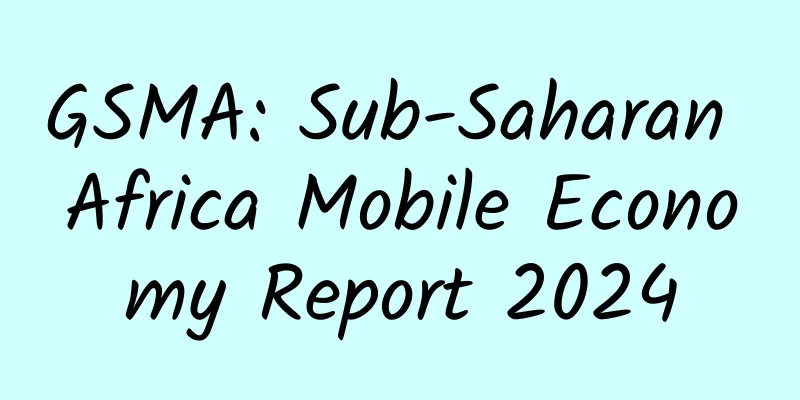GSMA: Sub-Saharan Africa Mobile Economy Report 2024

|
The GSMA has released its Sub-Saharan Africa Mobile Economy Report 2024, predicting that the mobile industry’s contribution to GDP will increase from $140 billion in 2023 to $170 billion by 2030 if key connectivity barriers are addressed. As digitalisation accelerates, 4G expansion will drive connections and is expected to account for half of all connections in 2030. However, large coverage gaps remain, with 13% of the population still not covered, and a 60% usage gap affects those who live within coverage areas but face barriers to getting online. Key findings from the 2024 report: Persistent usage gap: Mobile internet penetration in Sub-Saharan Africa reaches 27% by the end of 2023, but a large usage gap of 60% remains. Expanding 4G coverage and early 5G growth: 4G penetration in the region is expected to reach 50% by 2030, replacing 3G as the dominant technology. Although 5G adoption is still in its early stages, it is expected to reach 17% of total connections by 2030, mainly in South Africa, Nigeria, and Kenya. 5G economic impact and infrastructure needs: 5G alone is expected to contribute $10 billion to the region’s economy by 2030, accounting for 6% of the total economic impact of the mobile industry. Strengthening digital security: South Africa becomes the first country in Sub-Saharan Africa to implement the GSMA Open Gateway API, focusing on fraud prevention and security through Number Authentication and SIM Swap APIs. Generative AI potential: Generative AI is expected to contribute up to $1.5 trillion to Africa’s economy by 2030, with mobile operators increasingly using AI for customer engagement and network optimization. The report advocates a series of key actions to ensure sustainable growth and digital inclusion: 1. Affordability reforms: High costs remain a barrier to mobile access and the report calls for lower taxes on the sector. 2. Revitalize Universal Service Funds: Many universal service funds in sub-Saharan Africa are underperforming and are often hampered by inefficiencies. 3. Progressive spectrum policies: As data demand increases, the report urges governments to release more spectrum, especially in the 6 GHz band, and adopt policies that ensure efficient, affordable and environmentally sustainable mobile network expansion.
|
>>: YPulse: Instagram remains the favorite social platform for Gen Z and millennials
Recommend
How many days does it take to have a reaction after conception?
For friends who are preparing to get pregnant, it...
Why do I gain weight if I don't have my period?
Some female friends are overweight, have irregula...
Will vulvar furuncle heal on its own?
Some diseases can actually be cured by our body&#...
What is the most effective way to lower blood sugar in pregnant women?
Pregnant women will encounter many problems durin...
What causes premature ovarian failure in women? Beware of these triggers!
The female reproductive system is like a machine ...
What are the symptoms of menopause in women
Everyone has to go through a stage similar to ado...
Is it difficult to get pregnant with endometriosis?
Women are prone to many diseases, the most common...
What is Tiramisu? Is Tiramisu high in calories?
Tiramisu is an Italian dessert with a coffee wine...
Causes of low platelets in late pregnancy
Low platelet count in pregnant women has a great ...
Can I get pregnant again 10 months after a caesarean section?
Women who have had cesarean sections need longer ...
How many months is it appropriate to cut the hair of a newborn baby? What are the considerations for cutting the hair of a newborn baby?
We all know that a baby's hair has not grown ...
Does MRI have any impact on pregnancy preparation?
Nowadays, when everyone is preparing for pregnanc...
Is vaginal tightening exercise useful?
For women, the vagina is very important. Menstrua...
How do you fry frozen steak from the supermarket? How do you hold a knife and fork when eating steak?
Steak, or beef steak, is a block of beef and is o...
Can I eat breakfast during a gynecological examination?
For gynecological examinations, you can generally...









